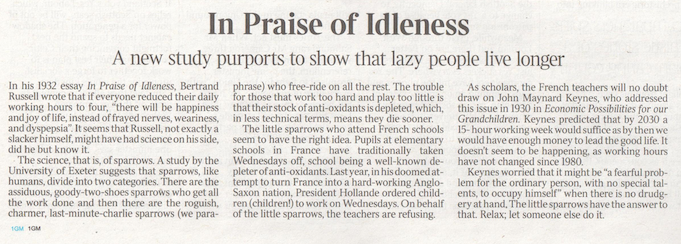Dom has rightly received a fair amount of media attention for this piece of work, and rightly so. This is important, as the public need to know what their taxes are funding and how this work fits into our broader understanding of the world. He was even interviewed on BBC radio:
https://soundcloud.com/dom-cram/dom-bbc-radio-interview-sept2014
This coverage though has been very varied, even within the ams newspaper. The Telegraph, link pasted below, covered it well but for some unknown reason decided to lead with a picture of elephant seals.... even though the work was done on a small desert dwelling bird. They also lead with "Alpha males..", even though the abstract clearly states that males showed a decline but it wasn't related to rank, the main result was for females. Well it was a good attempt. http://www.telegraph.co.uk/earth/earthnews/11070219/Alpha-males-and-females-at-risk-of-ill-health-and-premature-ageing.html
Cram et al (2014) Oxidative status and social dominance in a wild cooperative breeder. Functional Ecology, DOI: 10.1111/1365-2435.12317http://onlinelibrary.wiley.com/doi/10.1111/1365-2435.12317/abstract
- Oxidative stress has been proposed as a key mediator of life-history trade-offs, yet the social factors that affect patterns of oxidative status amongst individuals in animal societies remain virtually unexplored.
- This is important, as rank-related differences in reproductive effort in many social species have the potential to generate, or indeed arise from, differences in oxidative status across dominance classes.
- Here, we examine rank-related variation in oxidative status before and after a lengthy breeding season in a wild cooperatively breeding bird with high reproductive skew, in the semi-arid zone of Southern Africa; the white-browed sparrow weaver (Plocepasser mahali).
- Our findings reveal that prior to breeding, neither sex showed rank-related differences in markers of oxidative damage or antioxidant protection, suggesting that dominants' reproductive monopolies do not arise from superior pre-breeding oxidative status.
- After breeding, however, females (who provision young at higher rates than males) suffered elevated oxidative damage, and dominant females (the only birds to lay and incubate eggs, and the primary nestling provisioners) experienced differential declines in antioxidant protection.
- While males also showed reduced antioxidant capacity after breeding, this decline was not dependent on rank and not associated with elevated oxidative damage.
- Our findings suggest that divisions of labour in animal societies can leave the hardest-working classes differentially exposed to oxidative stress, raising the possibility of hitherto unexplored impacts on health and ageing in social species.
http://onlinelibrary.wiley.com/doi/10.1111/1365-2435.12317/abstract



 RSS Feed
RSS Feed
